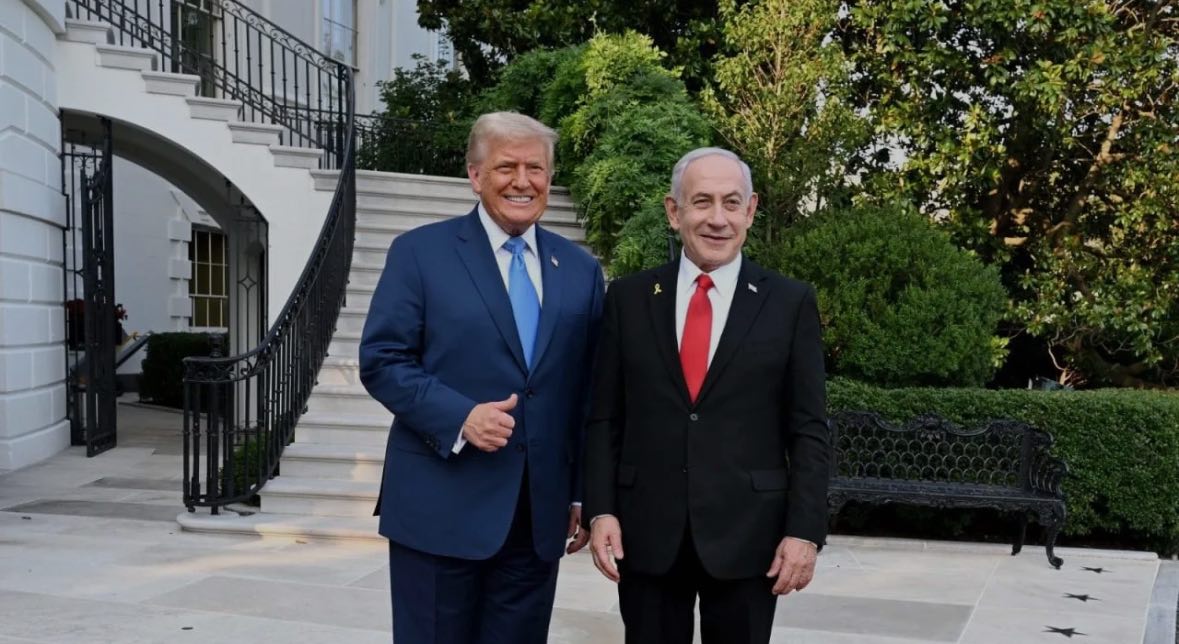Simultaneously with the dinner banquet at the White House, behind the smiles of Trump and Netanyahu, there are deep rifts concerning Iran and the Middle East.
Netanyahu seeks attack, Trump seeks deal, disagreement over the Iran dossier.
On Monday night, Donald Trump and Benjamin Netanyahu appeared victorious and happy at an official dinner at the White House, celebrating what they called a triumph over Iran. However, this friendly gathering could not conceal their serious disagreements over the future of the Middle East and how to deal with Tehran.
Trump, the President of the United States, and Netanyahu, the Prime Minister of Israel, described the recent attacks on Iran’s nuclear facilities as a turning point in stopping Iran’s nuclear program, a program which they believe aims to acquire nuclear weapons.
Nevertheless, two informed diplomats have warned that this achievement is temporary in nature because Iran still retains secret enriched uranium reserves and the capability to rebuild its nuclear program.
According to these sources, the main rift between the two leaders is in their approach to facing Iran.
Trump, who prefers to use more limited and diplomatic tools, emphasizes negotiation and controlled containment.
In contrast, Netanyahu, with a threat-focused view of Iran’s nuclear program, emphasizes a broader use of military options to force the Islamic Republic into a complete retreat, even if this path leads to a change of regime in Tehran.
According to a Reuters report, their differing views have also manifested in other regional issues, including a possible ceasefire in Gaza and the fate of hostages. Trump is inclined to portray himself as a peacemaker by playing a role in ceasefire negotiations.
However, Netanyahu insists on the complete destruction of Hamas and demands the expulsion of the remaining leaders of this group from the region, a demand that has faced strong opposition from Hamas.
Two informed officials in the Middle East have warned that there is still a significant gap between a temporary ceasefire and a lasting solution to the Gaza crisis.
Meanwhile, informed sources say Netanyahu is dissatisfied with the U.S. government’s move to restart nuclear talks with Tehran in Norway and is concerned that this process could become a form of opening for the Iranian government.
The Libya model is the ceiling of Netanyahu’s demands.
According to a statement by one of the close advisors to the Israeli Prime Minister, he only accepts a scenario similar to the disarmament of Libya in 2003, which involves the complete dismantling of Iran’s nuclear and missile facilities, even for peaceful purposes, under strict international supervision.
On the other hand, Western officials say Israel practically has no hope for negotiation and is seeking regime change in Iran, but Netanyahu knows that in the event of escalating tensions, Trump’s green light for subsequent attacks will be crucial.
While Trump seeks to turn the recent crisis into a diplomatic opportunity for a major agreement, he said at his recent dinner with Netanyahu that he hopes to be able to lift Iran sanctions in the future.
These remarks coincided with a message from Masoud Pezeshkian, the President of Iran, on the social network X. In this message, he referred to his recent conversation with Tucker Carlson and wrote that the leader of the Islamic Republic welcomes American investors entering Iran.
With a hint at the recent attacks, Pezeshkian said the problem is not Iran; it is Israel that does not allow peace in the region. Observers have interpreted this message as a sign of Tehran’s willingness to include economic issues within the framework of nuclear negotiations.
Now, the Islamic Republic faces two difficult options: continuing the nuclear path and accepting more attacks or retreating from a program that has cost it years.
While Trump seeks a quick agreement with economic benefits for the U.S., and Iran is reluctant to completely shut down its nuclear program, it is likely that the negotiation process will be deliberately prolonged by Tehran.
From Netanyahu’s perspective, the best opportunity for military action is now, as Iran’s nuclear facilities are damaged, its affiliated forces in the region are under pressure, and its deterrence has weakened. However, diplomatic sources warn that the window for this advantage will soon close.
In Washington, caution is a priority.
Although some hardliners in Washington support regime change in Iran, the Trump administration is not looking to engage in a costly and uncertain project.
Trump described the recent attack on Iran on June 22 as precise, limited, and deterrent, and said he would only consider the next action if Iran continues enrichment.
Alex Vatanka, the director of the Iran program at the Middle East Institute, says Trump is more intent on warning than on carrying out threats.
He believes the President’s emphasis on destroying the nuclear program is more of a tool for diplomatic bargaining than preparation for an all-out war.
Alan Eyre, a former American diplomat and Iran expert, also said that Israel does not have a practical and realistic plan to overthrow the Islamic Republic.
Unlike Iraq, in Iran, there is neither an invading army nor an organized opposition that can take power.
Ultimately, the U.S. will likely continue to provide military support to Israel and even offer advanced technologies, but the White House’s main focus will remain on economic pressure and diplomatic tools.
The result of this situation is a fragile stalemate with an uncertain future ahead.
However, Netanyahu believes that the decisive moment has now arrived. According to sources close to him, the Israeli Prime Minister sees the current situation as a transient strategic opportunity that should be fully exploited before Iran can rebuild its capabilities again.

